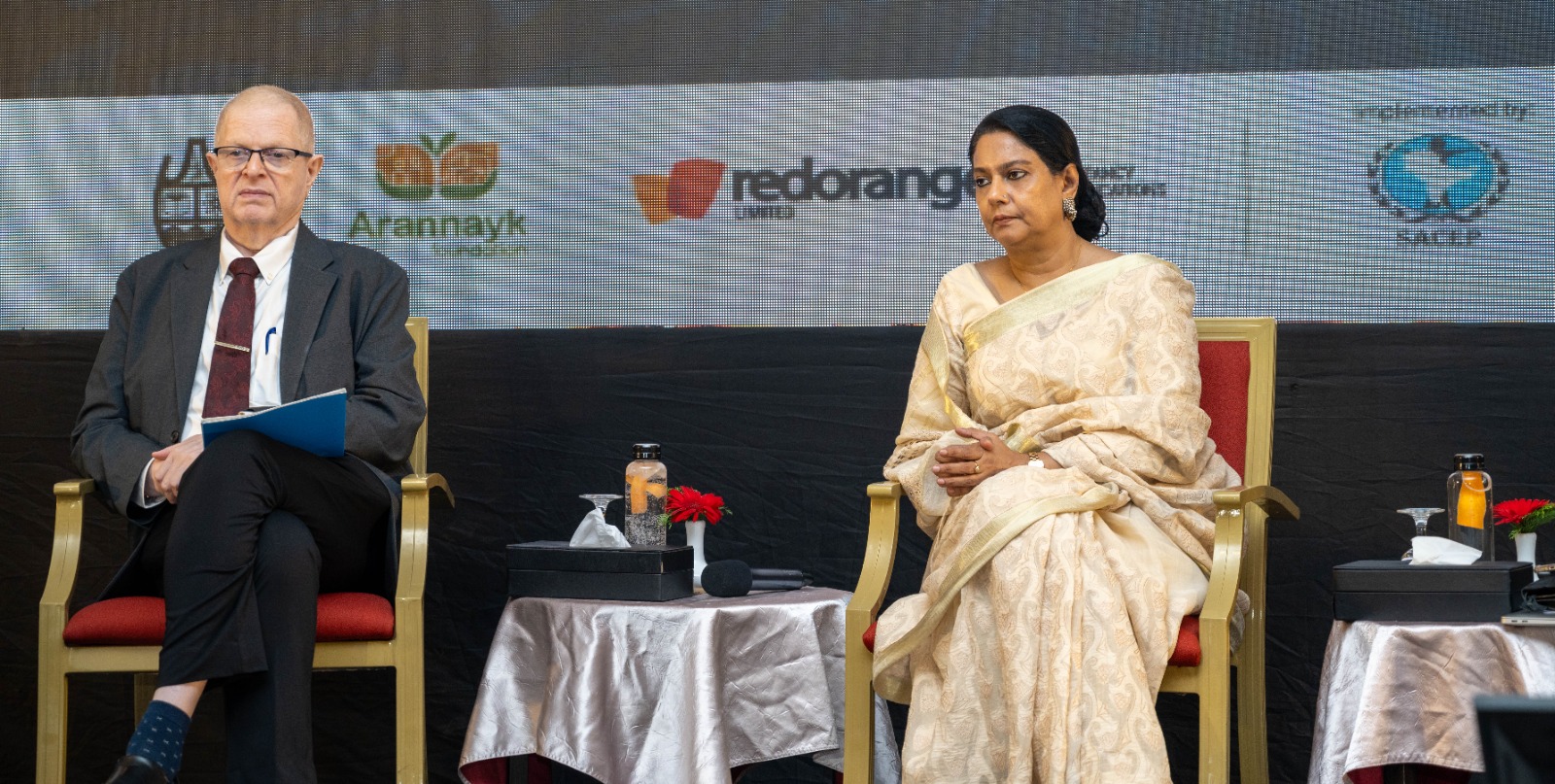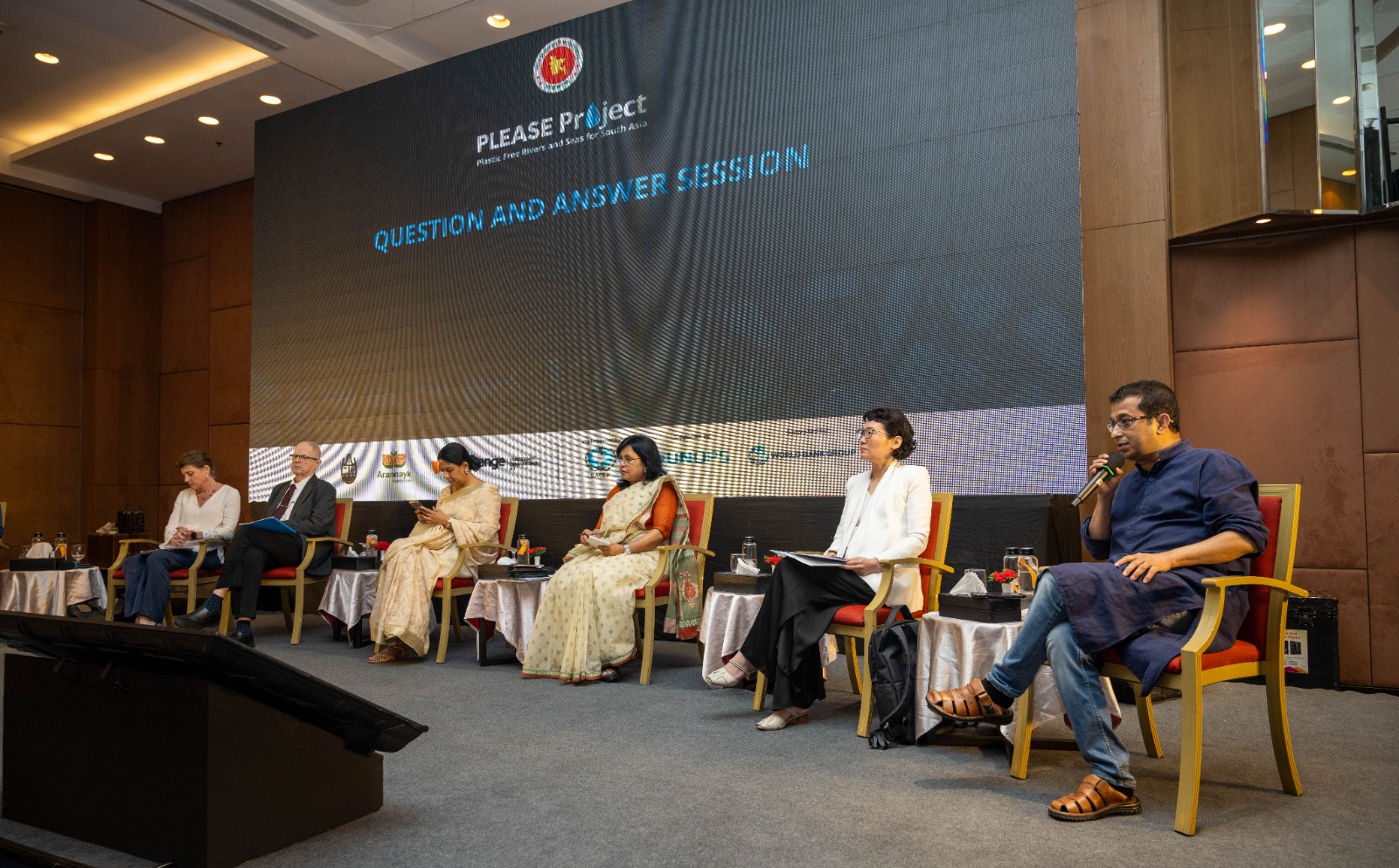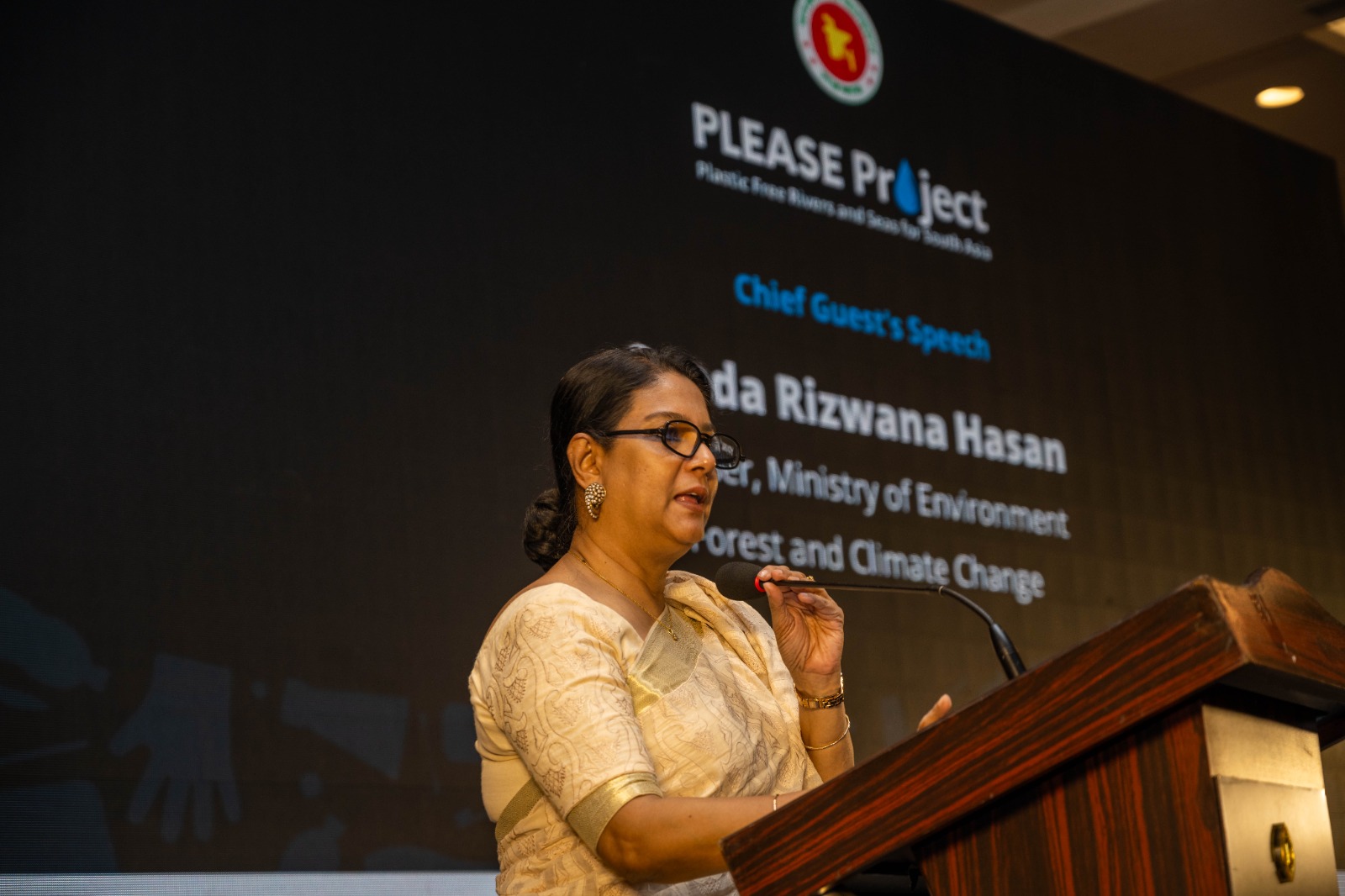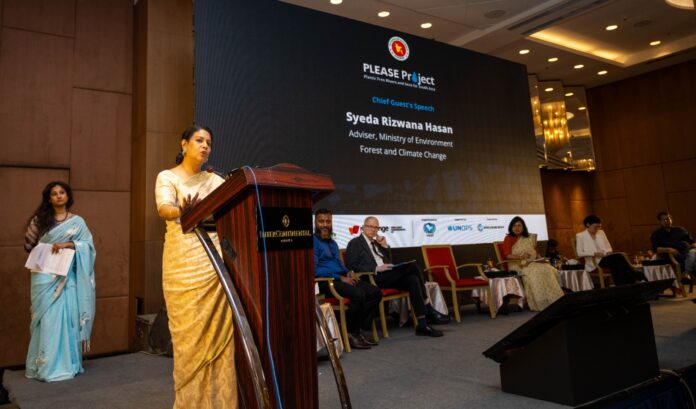Bangladesh took another important step toward a plastic-free, sustainable future as national and international stakeholders gathered today at the Intercontinental Dhaka for the National Knowledge Sharing Workshop of the Plastic Free Rivers and Seas for South Asia (PLEASE) Project. The event, themed “Scaling Innovations and Best Practices in Plastic Waste Management,” showcased transformative innovations and community-driven solutions addressing plastic pollution nationwide.
Chief Guest Sets the Tone for Change
In her keynote address, Syeda Rizwana Hasan, Adviser to the Ministry of Environment, Forest and Climate Change (MoEFCC), underscored the urgency of changing consumption habits. “Many people say that I only talk about polythene,” she remarked. “But in reality, all types of single-use plastics are causing physical and environmental harm. We must pay attention to this issue. Our ancestors lived without plastic—so can we.”
She added, “There are now many alternatives to plastic. It’s time we actively embrace those and reduce our reliance on harmful, disposable materials.”

Government Commitment to Innovation
Following her remarks, Dr. Fahmida Khanom, Additional Secretary at MoEFCC, emphasized the role of innovation, citizen responsibility, and inter-agency coordination. “This is our responsibility—not just as NGO officers or government staff, but as citizens—to reduce plastic waste and make our environment healthy,” she said.
Dr. Khanom also raised a critical question for future action: “How can we work with local governments to replicate these pilots in other areas? What should be our next step? We must engage meaningfully with the implementing partners and local authorities to scale these efforts.”

Development Partners Reaffirm Support
Representing the UN, Gwyn Lewis, UN Resident Coordinator in Bangladesh, highlighted the human stories behind the numbers. “Jobs created, awareness raised, waste repurposed—but what resonates with me most is the human dimension,” she said. “Waste pickers are being recognized and fairly compensated, women are gaining new economic opportunities, and young people are stepping up with real solutions. This is more than just an environmental movement—it’s a leap toward social and economic progress.”
Sudhir Muralidharan, UNOPS Country Manager, invited everyone to actively engage: “I would like to take this opportunity to invite all of you to participate fully in this knowledge-sharing session. Learn and replicate these solutions and pilots as we scale them into daily practice.”
Echoing this forward-looking approach, Gyongshim An, Programme Leader (Planet), World Bank, laid out the strategic focus going forward. “We are concentrating on three key areas: strengthening policy frameworks, enhancing regional cooperation, and continuing to support and scale the innovative solutions we’ve seen today.”

Real Impact on the Ground
The PLEASE Project, a regional initiative of the South Asia Cooperative Environment Programme (SACEP) supported by the World Bank and UNOPS, is implemented in Bangladesh under the MoEFCC’s guidance. The project’s local partners—Institute of Marine Sciences (IMS), University of Chittagong, Arannayk Foundation, and RedOrange Limited—shared their field-level innovations that are already making a difference:
- IMS—University of Chittagong is advancing circular economy models by recovering ghost fishing gear, producing 20,000+ biodegradable products, and training hundreds in eco-entrepreneurship.
- RedOrange Limited installed floating barriers in Kallyanpur canals of Dhaka, capturing over 65 metric tons of plastic waste to track pollution.
- Arannayk Foundation conducted the first-ever plastic audit in the Sundarbans and is working to digitize the informal waste sector, emphasizing gender-inclusive training.
To date, the PLEASE Project in Bangladesh has:
- Removed 384,000 kg of plastic waste,
- Created 250 jobs, and
- Trained 2,366 waste workers, one-third of whom are women.
Community Ownership and Future Pathways
Arnob Chakrabarty, Managing Director of RedOrange Limited, stressed the importance of low-tech innovation and community ownership. “Our intervention in Kallyanpur Canal didn’t just stop plastic—it built trust, shifted narratives, and provided a replicable partnership model that works,” he said.
Dr. Md. Abdul Motaleb, Interim Executive Director of Arannayk Foundation, concluded the event with a personal note: “The first step toward proper waste management starts at home. My daughter knows not to litter—because that’s how she was raised. We must begin this journey with our children.”
Next Steps for Replication
The workshop closed with key recommendations for scaling successful models across Bangladesh:
- Integrating plastic tracking into smart city plans,
- Formalizing waste pickers through national social protection schemes, and
- Introducing plastic education into school curricula.
As the workshop concluded, participants left with a renewed sense of purpose, recognizing that solving the plastic crisis will require not just innovation, but collaboration, commitment, and community action at every level.



